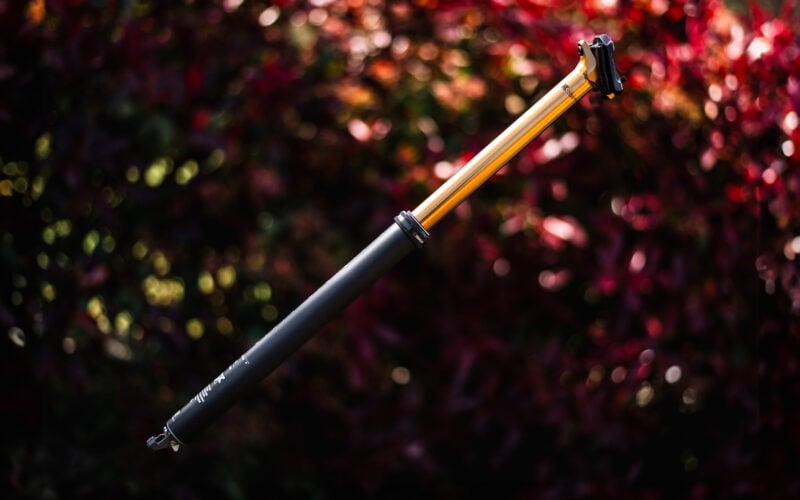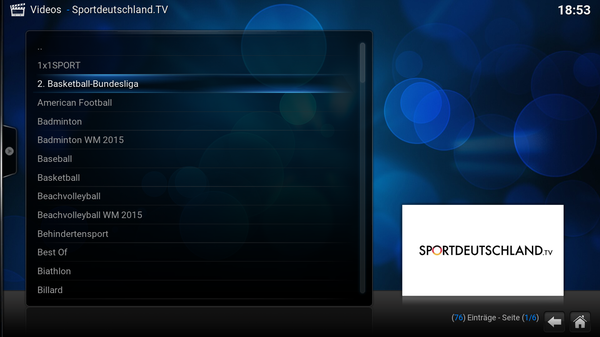
(l to r) Richard Carrion IOC EB member, Brian Roberts, CEO and Chairman, Comcast, Jacques Rogge IOC President (c) IOC/Richard Juilliart
Da haben sich zwei gesucht und gefunden. NBC Universal bleibt also bis 2020 Olympiasender. Das ist die sportpolitische Top-Meldung dieser Tage. Die Summe hat es in sich: 4,4 Milliarden Dollar für das Paket von vier Spielen – hinzu kommen die Sponsoren-Millionen von General Electric, die schon die bis 2012 geltenden Vertragssummen um bis zu 200 Millionen Dollar erhöhten. Der neue Besitzer Comcast ist überzeugt, dass die Verluste der Olympia-Abenteuer in Vancouver (mehr als 200 Mio $) und London (es wird ein deutlicher Verlust erwartet) konzernweit ausgeglichen werden und sich die Investition also dennoch rechnet.
Damit sind die USA nun auch wieder für die Olympischen Sommerspiele 2020 im Spiel. Die Amis und ihr USOC wären dämlich, würden sie diese Chance nicht nutzen.
IOC-Präsident Jacques Rogge hat sie gestern regelrecht aufgefordert:
You are the country that has organized the most Olympic Games, with the best athletes in the world. If there is a bid coming for 2020 from the USA, we would be very happy.’
Wer außer Rom ist derzeit im Olympia-Rennen? Südafrika hat abgesagt. Die Türken werden sich nach der Wahl (am 12. Juni) flink zwischen einer neuerlichen Euro-Bewerbung (für 2022) und einer weiteren Olympiabewerbung von Istanbul entscheiden müssen. Die Amerikaner sind zwar international sportpolitisch noch immer isoliert und tragen schwer am Trauma der Desaster von New York (vorletzter Platz im Wettbewerb um die Sommerspiele 2012) und Chicago (letzter Platz im Rennen um 2016), jedoch hat sich ihre Lage mit der neuen USOC-Führung, den positiven Entwicklungen in den Verhandlungen um das olympic revenue sharing und diesem neuerlichen Milliardendeal extrem verbessert. Es bleibt dabei: In den USA wird fast die Hälfte des IOC-Umsatzes generiert.
Allein NBC hat, diesmal erstmals ohne Dick Ebersol, der im Mai den Dienst quittierte, den IOC-Deal aber noch mit vorbereitete, seit dem 1988er Vertrag mehr als 11 Milliarden Dollar für olympische TV-Rechte bezahlt.
- 1988, Seoul: 300 Mio $
- 1992, Barcelona: 401 Mio $
- 1996, Atlanta: 456 Mio $
- 2000, Sydney: 705 Mio $
- 2002, Salt Lake City: 545 Mio $
- 2004, Athen: 793 Mio $
- 2006, Turin: 613 Mio $
- 2008, Peking: 894 Mio $
- 2010, Vancouver: 820 Mio $
- 2012, London: 1181 Mio $
- 2014, Sotschi: 775 Mio $
- 2016, Rio de Janeiro: 1226 Mio $
- 2018, München oder PyeongChang: 963 Mio $
- 2020: 1418 Mio $
Die letzten/aktuellsten verfügbaren IOC-Statistiken:

So hat sich das Verhältnis von US-Markt und Einnahmen in anderen Territorien zuletzt entwickelt:

Hoch interessant, was der aufmüpfige Urs Leutert, Sportchef des Schweizer Fernsehens, zur IOC-Strategie der Gewinnmaximierung einmal mehr im NZZ-Interview sagt (Verrat an der olympischen Idee):
Die Rechte für die Spiele 2014 und 2016 haben Sie noch nicht. Wo stehen die Verhandlungen?
Das Internationale Olympische Komitee hat nach über 50 Jahren Zusammenarbeit mit der EBU, dem Zusammenschluss der Service-Public-Sender in Europa, gebrochen und die Vermarktung der TV-Rechte einer Agentur übertragen. Diese ehrenwerten und integren Verkäufer kommen nun zur Türe rein und stellen als Erstes klar: «Sie wissen, wir sind keine Nonprofitorganisation.» Und dann reden wir aneinander vorbei:
- Wir reden von Sport, sie reden von Geld;
- wir reden von Fernsehen, sie reden von Geld;
- wir reden vom Olympiaprogramm, sie reden von Geld.
Und sie bieten uns einzelne Sportarten und einzelne Pakete zum Beispiel für TV, Radio oder Internet an.
Diese Aufsplittung der Sportarten und diese unersättliche Geldgier des IOK sind ein totaler Verrat an der olympischen Idee.
Die vermeintlichen Treuhänder des Sports in Lausanne agieren heute wie Banker.
Die olympischen TV-Verträge und die Umstände, unter denen diese Verträge geschlossen wurden, waren lange eines meiner Lieblingsthemen. Aus Zeitgründen muss ich diesmal passen, konnte gestern LEIDER auch nicht in Lausanne sein, ein gewiss einmaliges Erlebnis, und das meine ich extrem ernst, und muss mich auch heute kurz fassen.
Im Blog habe ich mich einige Male mit dem Thema befasst, in den Kommentaren hat Ralf wie gewohnt professionell ein hübsches Archiv verlinkt:
- Dick Ebersol: Olympias Milliardenmann
- Lust und Frust: olympische TV-Milliarden (hier finden sich etliche Tabellen, die die Abhängigkeit der meisten olympischen Sportverbände von den IOC-Einnahmen illustrieren)
Einige Lesebefehle:
- Alan Abrahamson (ehemals NBCUniversal online) auf seinem Blog 3 wire sports: NBC’s $4.38 billion knockout punch
- Phil Hersh in der Chicago Tribune: Are there now 4.38 billion reasons for U.S. to bid for 2020 Summer Games?
- Kai Pahl hat sich auf allesaussersport vorab mit dem Thema befasst – Olympia sucht US-TV – und amüsiert sich nun vor allem über jene exorbitanten 900 Mio $, die NBCU mehr geboten hat als Konkurrent Fox:
Gewonnen hat NBC, die im Vergleich zu den Mitbewerbern so deutlich mehr drauf gepackt haben, dass der Verdacht naheliegt, Sportrechtehändler des ZDF hätten einen lukrativen Nebenjob gefunden.
- AP: NBC locks up US Olympic TV rights through 2020
![]()
- USA Today: NBC pays out, but do the Olympics pay off?
![]()
Die komplette IOC-Pressemitteilung muss sein:
IOC awards US broadcast rights for 2014, 2016, 2018 and 2020 Olympic Games to NBCUniversal
The International Olympic Committee (IOC) today awarded NBCUniversal (NBCU) the broadcast rights in the US for the XXII Olympic Winter Games (2014) in Sochi, Russia, and the Games of the XXXI Olympiad (2016) in Rio De Janeiro, Brazil, as well as the 2018 and 2020 Olympic Games, which have yet to be awarded to a host city.
NBCU has acquired the broadcast rights across all media platforms, including free-to-air television, subscription television, internet and mobile. The total agreement is valued at USD 4.38 billion.
“We are delighted to have reached an agreement with our longstanding partner NBCU,” said IOC President Jacques Rogge. “We received three excellent bids and would like to thank each broadcaster for their presentations. In the end we were most impressed with NBCU, which not only has a track record for broadcasting the Games that speaks for itself, but also has a clear and innovative vision of where it wants to take the broadcast of the Games between now and 2020. We look forward to continuing to build on our already strong relationship beginning in London next year.”
The IOC based its decision on a long-term broadcast strategy aimed at ensuring broadcast of the Olympic Games of the highest quality, maximising exposure across all available media platforms, and securing the financial future of the Olympic Games and the Olympic Movement.
“We had an obligation to pick the best bid on behalf of the entire Olympic Movement,” said IOC Executive Board member Richard Carrión, who, along with IOC President Jacques Rogge, led the negotiations. “We assessed each bid against a thorough set of criteria and believe that the long-term nature of this agreement will not only ensure fantastic Olympic broadcast coverage in the US, but also support the long-term financial stability of the Olympic Movement as a whole. NBCU has proven its worth time and again over the years and we’re very excited to continue working with them.”
The IOC has enjoyed a long partnership with NBCU, and this agreement will mean that by 2020, NBCU will have covered a total of 17 editions of the Games, beginning in 1964.
“We are honoured to continue as the US Olympic broadcaster for the remainder of this decade. The vision for our new Comcast-NBCUniversal was to create new platforms and technologies to distribute the very best content. Every two years the Olympic Games provides iconic content for us to deliver on all platforms. We are proud to continue the rich heritage and long association that NBC has had with the IOC and I personally want to thank President Rogge and Richard Carrión for their long-term trust,” said Brian Roberts, CEO and Chairman, Comcast, parent company of NBCUniversal.
The decision came after two days of meetings held at the IOC headquarters in Lausanne, Switzerland, during which ESPN, Fox and NBCU each gave a presentation and submitted their proposals to the IOC. The negotiation process started earlier this year with preliminary discussions conducted with all interested parties. Each proposal was discussed by an IOC delegation chaired by President Rogge.
###
NBCU acquired the right to be the IOC’s broadcast partner for the London 2012 Olympic Games in 2003.
The 2018 Olympic Winter Games host city vote will take place at the 123rd IOC Session in Durban, South Africa, in July 2011.
The 2020 Olympic Games host city vote will take place at the 125th IOC Session in Buenos Aires, Argentina, in September 2013.

















